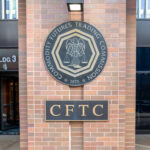Kalshi eyes expansion in China and India

US-regulated prediction market Kalshi has revealed that China and India are among the list of nations it hopes to target.
According to Sportico the group, which plans to expand into as many as 140 countries, confirmed China and India were part of the global growth plan.
The two countries are notable inclusions given the size of their populations and their strict regulations on gambling.
China enforces widespread control over internet use and has a near-total ban on gambling, apart from state-run lotteries. Major American digital platforms, such as Google, Facebook, and Reddit, are still blocked in the country, and foreign firms face stringent investment restrictions.
In India, a new law passed in August, known as the Promotion and Regulation of Online Gaming Bill, effectively bans most forms of online betting. The legislation has prompted lay offs at Indian platform Mobile Premier League, as well as fantasy sports operators like Dream11.
Major operators, such as Flutter Entertainment, have also stopped paid contests in the country. At the same time, the India-based prediction market Probo has ceased its real-money operations following the ban.
Despite Kalshi’s stated inclusion of both countries, Sportico reports that users in India are still unable to register accounts on the platform, suggesting that the platform is yet to launch the product there.
The company’s expansion plan comes shortly after it was valued at approximately US$5 billion, but it also faces significant regulatory challenges in the US.
Charlotte Capewell brings her passion for storytelling and expertise in writing, researching, and the gambling industry to every article she writes. Her specialties include the US gambling industry, regulator legislation, igaming, and more.
Verticals:
Sectors:
Topics:
Dig Deeper
The Backstory
Setting the stage
Prediction markets are moving from niche to mainstream finance, but the business model remains entangled in a patchwork of regulation at home and abroad. In recent months, Kalshi has become the focal point of that tug of war, defending its federally regulated status while state gaming authorities push to classify its sports and event contracts as gambling. At the same time, rivals like Robinhood are testing how far the category can travel outside the United States, where futures oversight by the Commodity Futures Trading Commission gives the product a regulatory home. The backstory shows how litigation, lobbying and product design are shaping who gets to set the rules, which markets can be listed and where the next wave of growth could land.
Kalshi, freshly valued around $5 billion, has signaled a global push that includes tightly controlled markets such as China and India, even as its U.S. legal battles continue. That juxtaposition underscores the stakes: if the company proves its swaps framework preempts state gambling laws, it could open a wide national footprint that competitors would need to match. If not, the path to scale looks more like a state-by-state licensure grind or a pivot to friendlier jurisdictions.
States push back as Kalshi tests boundaries
Kalshi’s thesis is straightforward: its event contracts are federally regulated derivatives, not bets, and therefore fall under the Commodity Futures Trading Commission’s purview. State regulators disagree, especially where the underlying reference is sports. The clash intensified after cease-and-desist letters arrived from Nevada, New Jersey and Maryland, which Kalshi challenged in court. A federal judge in Nevada granted the company a temporary reprieve to keep operating while the case proceeds, and later committed to move quickly on a final judgment given the implications for U.S. sports betting and prediction markets.
Maryland followed a similar script. The state’s lottery and gaming commission sought to block Kalshi’s business, prompting the company to sue on preemption grounds. Kalshi argues that Congress established a comprehensive federal framework for futures, leaving no room for conflicting state regulation when a trading venue is designated and supervised by the CFTC. The company is asking a court for preliminary and permanent injunctions to keep Maryland at bay, as detailed in Kalshi’s lawsuit against the Maryland Lottery and Gaming Control Commission.
The legal stakes extend beyond venue control to public policy. Nevada’s gaming board and the resort industry argue Kalshi’s platform looks like unregulated sports betting and lacks mandated consumer protections. Kalshi counters that peer-to-peer swaps differ from house-backed wagering and that federal derivatives rules govern margin, disclosures and surveillance. How courts draw that line will influence where and how event markets can trade in the U.S.
A Wire Act wrinkle threatens a key win
Even as Kalshi secured temporary relief in Nevada, a potential federal tripwire emerged. Reporting flagged that the Department of Justice’s Wire Act could apply to sports-related wagering conducted across state lines, regardless of whether a platform calls the activity swaps or betting. In a detailed analysis, questions surfaced over whether Kalshi’s sports markets run afoul of the Wire Act’s prohibition on interstate transmission of sports wagering information. Nevada’s attorney general did not initially raise the argument in court but retained the option to bring it in subsequent filings, including a response due April 23.
The Wire Act does not distinguish between exchanges and bookmakers. If the statute is invoked successfully, Kalshi could face federal constraints that supersede its CFTC defense on sports contracts, even if it prevails on state preemption. That pathway would leave non-sports event contracts untouched but would blunt one of the platform’s higher-velocity categories and complicate its growth projections.
Election contracts reshape the competitive map
Kalshi’s legal momentum has been stronger on political markets. The CFTC dropped its appeal of a federal ruling that allowed Kalshi to list congressional election contracts, cementing a significant precedent for the sector. The decision, which followed a Washington, D.C., district court ruling in Kalshi’s favor, widened the lane for regulated prediction markets tied to public outcomes outside sports. The regulator’s retreat was documented in coverage of the CFTC’s decision to drop its appeal, which also noted pushback from financial reform advocates concerned about gambling on democratic processes.
For operators, the takeaway is twofold. First, there is an increasingly durable legal footing for election-related event contracts under the derivatives framework, at least pending further legislative or regulatory action. Second, state-level prohibitions still matter. Nevada’s constitution bans election wagering, and its gaming authorities have argued that Kalshi’s listings conflict with that standard. The interplay between federal permissibility and state-specific bans will shape product menus and customer access in the U.S. for the next cycle.
Overseas ambitions meet regulatory reality
With the U.S. map unsettled, companies are sizing up international avenues. Robinhood has begun consultations with overseas regulators to determine how prediction products fit under local rules, which often treat them as gambling rather than derivatives. The company has been in discussions with the U.K.’s Financial Conduct Authority to clarify whether and how swap-like oversight applies, according to reporting on Robinhood’s plans for overseas prediction markets. The firm has emphasized keeping controversial markets off the platform and building compliance into any rollout, a signal that reputational risk will be as material as legal risk.
Kalshi, meanwhile, has floated a sweeping international push that includes China and India among up to 140 target countries. Those choices highlight the scale opportunity and the regulatory headwinds. China maintains a near-total gambling ban aside from state lotteries and imposes strict controls on foreign internet platforms. India moved in August to effectively ban most online betting and has already seen local operators curtail or shut real-money offerings. The contours of that strategy are outlined in coverage of Kalshi’s global expansion plans naming China and India, which also notes the platform does not yet appear open to Indian users.
What’s at stake for the market
The next rulings in Nevada and Maryland will signal whether federal derivatives law can fence off prediction markets from state gambling oversight, at least for non-sports events. A Wire Act challenge could redraw the line on sports contracts regardless of preemption. For operators, the strategic calculus is shifting: emphasize non-sports events with clearer federal footing, dial back exposure to sports until legal clarity arrives, or pursue parallel licensing in states where sports betting is already legal.
Internationally, success will hinge on adapting to local classifications and controls. Robinhood’s regulator-first approach suggests one template. Kalshi’s ambition to plant flags in some of the most restrictive markets underscores another: set the aspiration, then work backward through licensing, product design and access constraints. Either way, the category is moving toward a more mature compliance posture as it scales. The legal outcomes now will determine who gets there fastest and with the widest addressable market.








